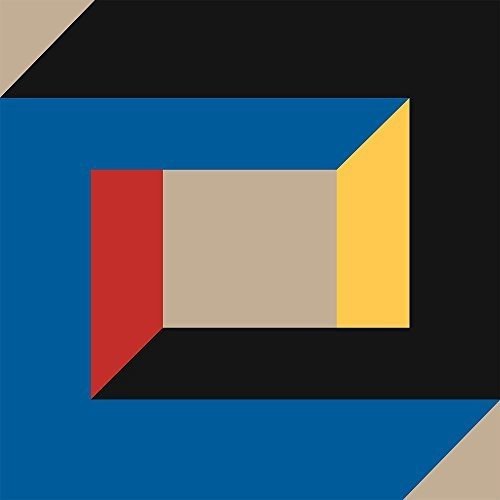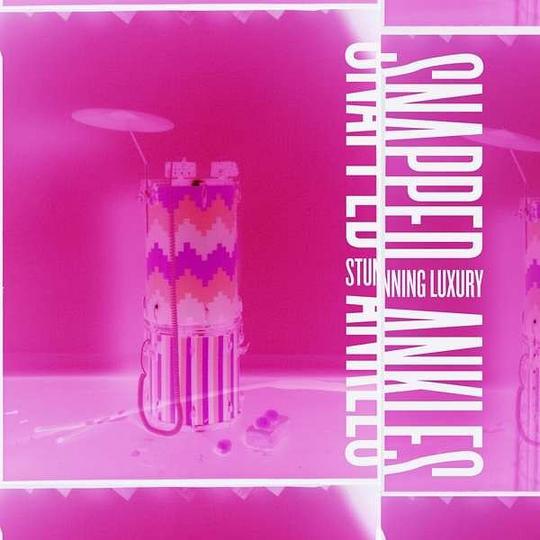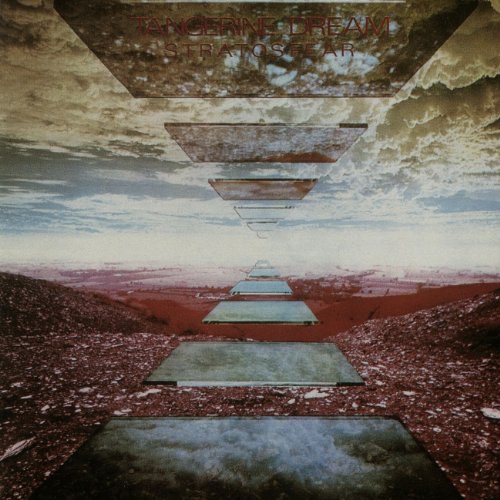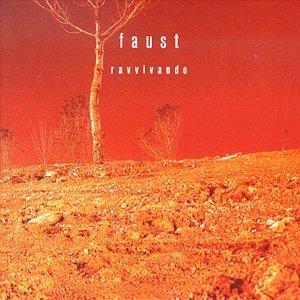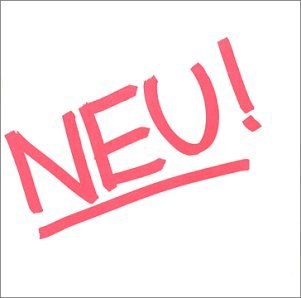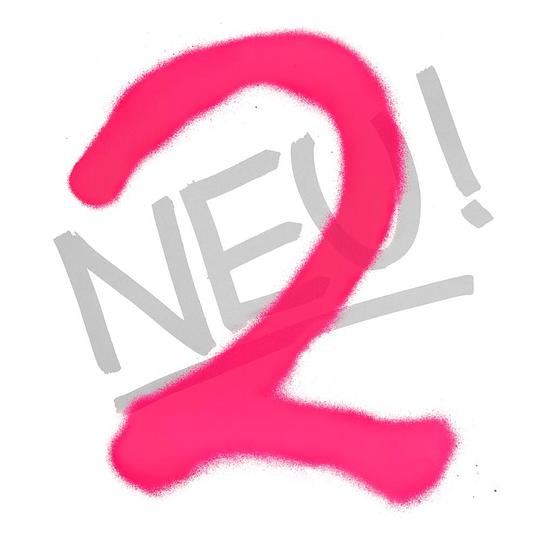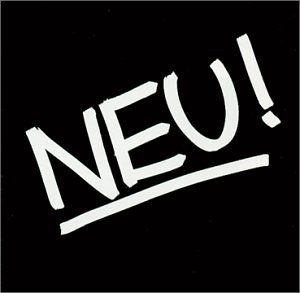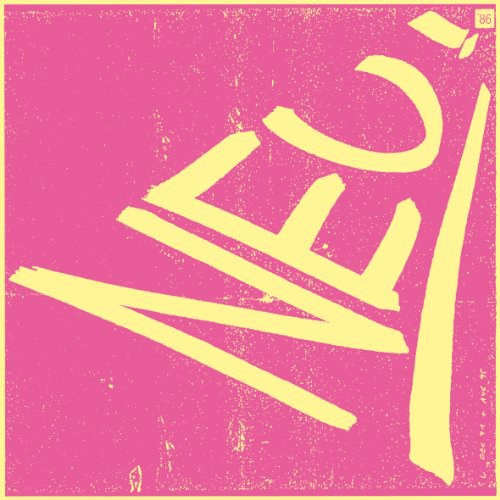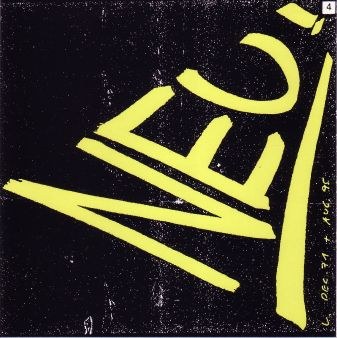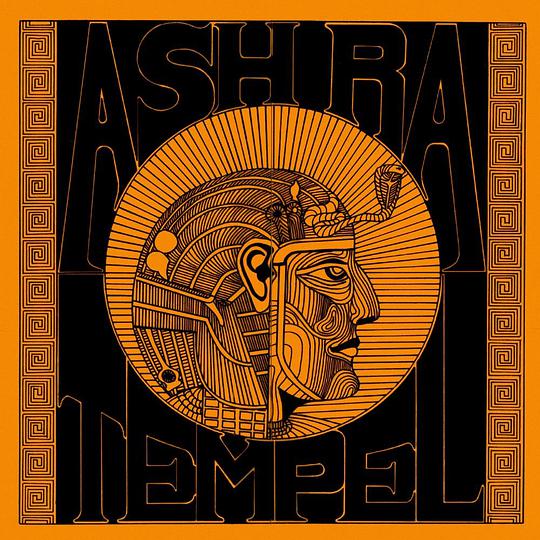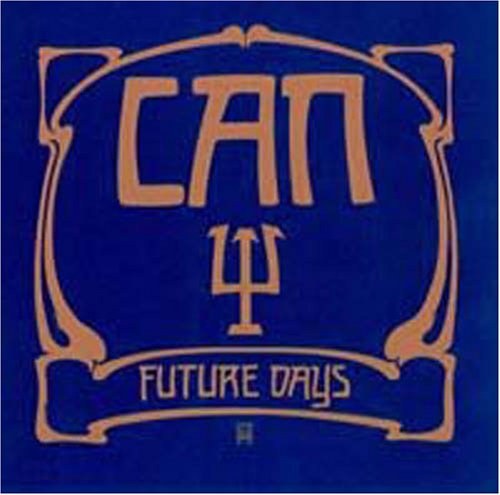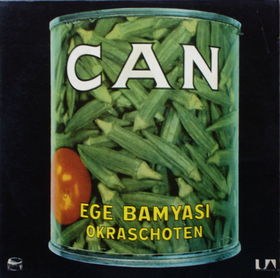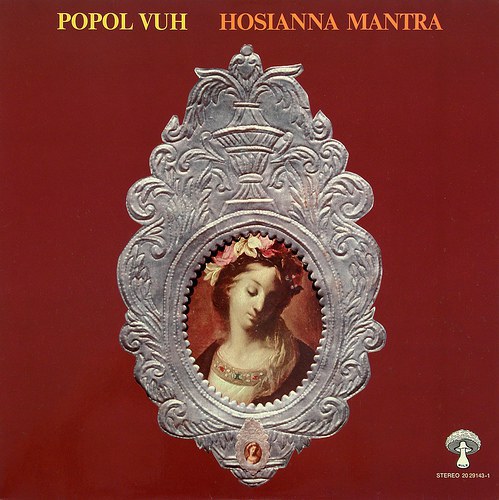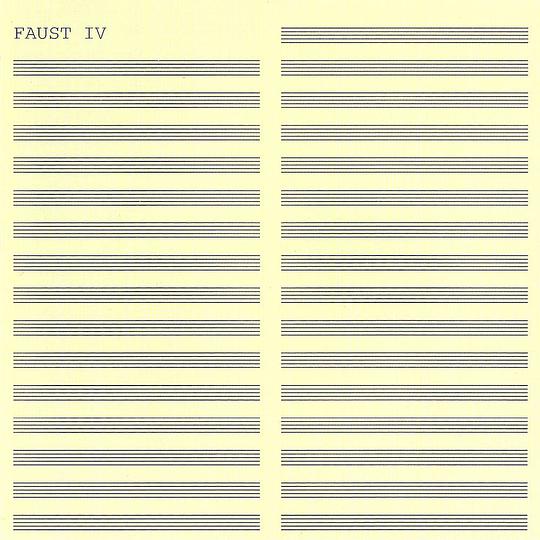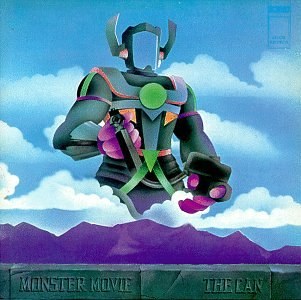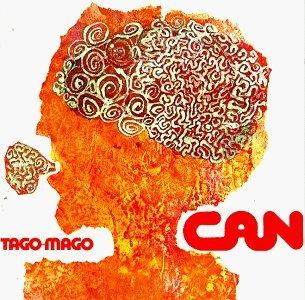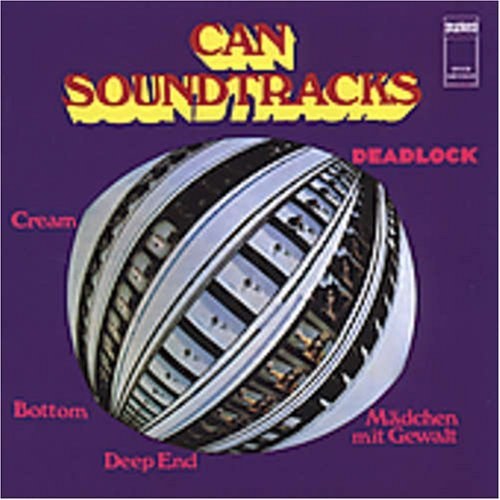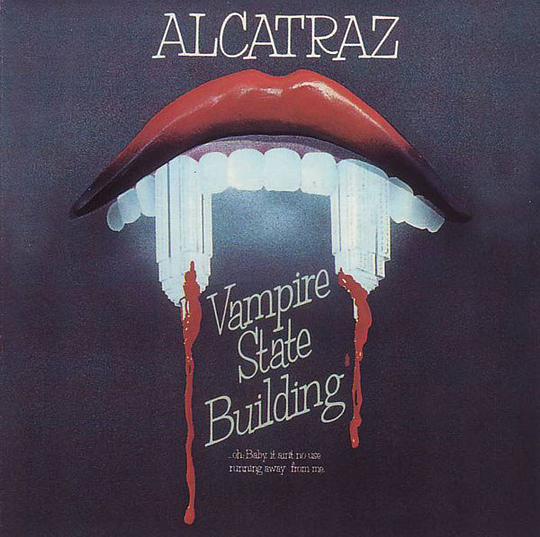Can was a German experimental rock band formed in Cologne, West Germany in 1968 by the core quartet of Holger Czukay (bass), Irmin Schmidt (keyboards), Michael Karoli (guitar), and Jaki Liebezeit (drums).
The group cycled through several vocalists, including Malcolm Mooney ('68ñ70) and Damo Suzuki ('70ñ73), as well as various temporary members. Drawing from backgrounds in the avant-garde and jazz, Can incorporated minimalist, electronic, and world music elements into their often psychedelic and funk-inflected music. They have been widely hailed as pioneers of the German krautrock scene.
The band used the names "Inner Space" and "The Can" before finally settling on "CAN". Liebezeit subsequently suggested the backronym "Communism, Anarchism, Nihilism" for the band's name. In mid-1968, the band enlisted the creative, highly rhythmic, but unstable and often confrontational American vocalist Malcolm Mooney, a New York-based sculptor, with whom they recorded the material for an album,Prepared to Meet Thy Pnoom.
The next few years saw Can release their most acclaimed works. While their earlier recordings tended to be at least loosely based on traditional song structures, on their mid-career albums the band reverted to an extremely fluid improvisational style.
The double album Tago Mago (1971) is often seen as a groundbreaking, influential and deeply unconventional record, based on intensely rhythmic jazz-inspired drumming, improvised guitar and keyboard soloing (frequently intertwining each other), tape edits as composition, and Suzuki's idiosyncratic vocalisms. Czukay: "(Tago Mago) was an attempt in achieving a mystery musical world from light to darkness and return."
The later albums Landed (1975) and Flow Motion (1976) saw Can moving towards a somewhat more conventional style as their recording technology improved. Accordingly, the disco single "I Want More" from Flow Motion became their only hit record outside Germany. Co-written by their live sound mixer Peter Gilmour, it reached No 26 in the UK charts in October 1976, which prompted an appearance on Top of the Pops, where Czukay performed with a double bass.
In 1977 Can were joined by former Traffic bassist Rosko Gee and percussionist Rebop Kwaku Baah, both of whom provided vocals to Can's music, appearing on the albums Saw Delight (1977), Out of Reach (1978) and Can (1979). During this period Holger Czukay was pushed to the fringes of the group's activity; in fact he just made sounds using shortwave radios, Morse code keys, tape recorders and other sundry objects. He left Can in late 1977 and did not appear on the albums Out of Reach or Can, although he was involved with production work for the latter album. The band seemed to be in a hiatus shortly afterwards, but reunions have taken place on several occasions since.
Tago Mago is the third album by the German krautrock band Can, originally released as a double LP in 1971. It was the band's second studio album and the first to feature Damo Suzuki after their previous vocalist, Malcolm Mooney, quit the band in 1970 to return to the United States.
Tago Mago has been described as Can's best and most extreme record in sound and structure. The album has received much critical acclaim since its release and has been cited as an influence by various artists.
With the band in full artistic flower and Damo Suzuki's sometimes moody, sometimes frenetic speak/sing/shrieking in full effect, Can released not merely one of the best Krautrock albums of all time, but one of the best albums ever, period. Tago Mago is that rarity of the early '70s, a double album without a wasted note, ranging from sweetly gentle float to full-on monster grooves. "Paperhouse" starts things brilliantly, beginning with a low-key chime and beat, before amping up into a rumbling roll in the midsection, then calming down again before one last blast. Both "Mushroom" and "Oh Yeah," the latter with Schmidt filling out the quicker pace with nicely spooky keyboards, continue the fine vibe. After that, though, come the huge highlights three long examples of Can at its absolute best.
"Halleluwah" featuring the Liebezeit/Czukay rhythm section pounding out a monster trance/funk beat; Karoli's and Schmidt's always impressive fills and leads; and Suzuki's slow-building ranting above everything is 19 minutes of pure genius.
Members
Damo Suzuki ñ vocals
Holger Czukay ñ bass, engineering, editing
Michael Karoli ñ guitar, violin
Jaki Liebezeit ñ drums, double bass, piano
Irmin Schmidt ñ keyboards, vocals on "Aumgn"
